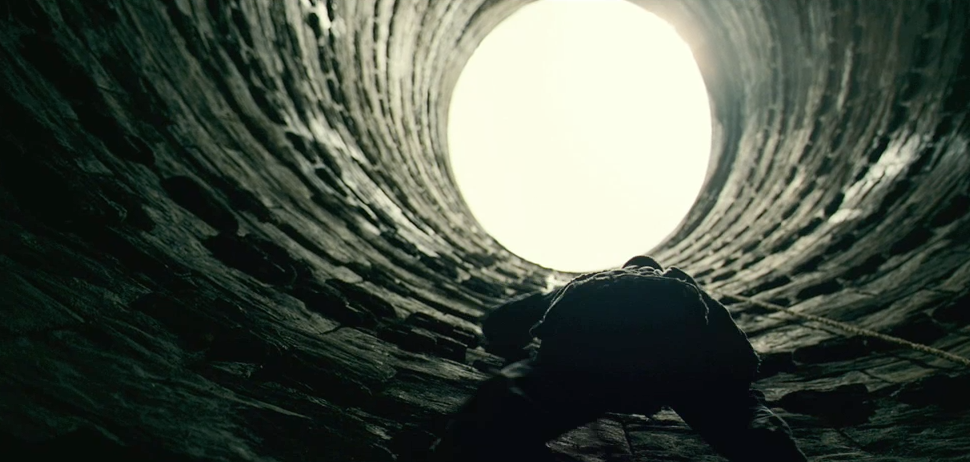
Coming up on a month ago, I read a piece that bugged me. Had I been holding myself to a more rigorous writing schedule at the time, I would have banged out a response piece quickly. But perhaps it’s just as well that I didn’t, because experience has taught me one rarely does one’s best work on impulse, especially with sensitive questions such as those raised in this piece. I’m speaking of this essay by James K. A. Smith for Christian Century. The magazine no doubt chose the headline for him: “I’m a philosopher. We can’t think our way out of this mess.” But it’s not an inaccurate summing-up of Smith’s gist.
The essay is part personal testimony, part opinion piece about the trajectory of Christian culture-making. Smith writes about the change of heart and career goals he underwent since first setting out as a young gung-ho philosopher. Inspired by Alvin Plantinga’s “Advice to Christian Philosophers,” Smith aspired to be a bold, self-confident Christian in his field. (Specifically, in continental philosophy, a bit of an unexpected career choice for a young academic aspiring to follow in Al Plantinga’s footsteps, but we digress.) In hindsight, Smith cringes over his brash, polemical younger self, believing he had a misguided view of how hearts and minds were actually changed:
As a young Christian philosopher, I wanted to be the confident, heresy-hunting Augustine, vanquishing the pagans with brilliance, fending off the Manichaeans and Pelagians with ironclad arguments. As a middle-aged man, I dream of being Mr. Rogers. When you’re young, it’s easy to confuse strength with dominance; when you’re older, you realize the feat of character it takes to be meek. I used to imagine my calling was to defend the Truth. Now I’m just trying to figure out how to love.
Perhaps sensing that this smacks of a false dichotomy, Smith follows up “It’s not that I’ve given up on truth. It’s just that I’m less confident we’ll think our way out of the morass and malaise in which we find ourselves. Analysis won’t save us.” What should we look to instead? Smith says we can find a better way through the transformative power of literature, which effects change by shaping imaginations rather than by arguing people out of their beliefs.
This isn’t a particularly new trope. Indeed, it’s become rather a cliché to set up philosophy on one side, as the abstractly arid province of the mind, and literature on the other side, as the warm, pulse-quickening province of the heart. As someone who has deeply studied both philosophy and literature, who has friends in both fields, and who aspires to “connect the prose and the passion” in my own writing, I find no truth or utility in this trope. I never have. It’s a caricature. I recognize neither the academics I know nor the work that they do in it. Specifically, I don’t recognize the Christian philosophers I know, who are humble and gracious and whose professional output (contrary to the “angels dancing on the head of a pin” reductions of what analytic philosophers actually do) bears upon matters of great import, including the truth of Christianity.
That’s not to say Smith is wrong that literature can provide emotional comfort in moments where abstractions fail to sustain. However, even here the mind still has an important role to play, which was treated in a far more balanced way by Tim Keller in his recent article for The Atlantic. As Keller faces a terminal cancer diagnosis, he writes honestly that he hasn’t been free from doubt, but in order to address and calm that doubt he was forced to draw upon more than one kind of resource. For him, revisiting N. T. Wright’s arguments for the resurrection played a sustaining role, assuring him that regardless of how his faith makes him feel, it’s actually true. In reading Keller’s piece, I’m reminded of an analogy from the old apologist Richard Cecil, describing how he dealt with doubt: “Like a man who is told that the foundation of his house is in danger, I call for the key of the vaults on which my dwelling stands. I light a candle, walk down stairs, and pass very deliberately through the arches: I examine very particularly the arch suspected; and, after having satisfied myself that the foundation remains perfectly safe, I walk up again, lock the door, hang up the key, put out the candle, and quietly go about my business, saying as I go, ‘They may raise an alarm, but I find ALL IS SAFE.’ ”
Smith also is not wrong that a shriveled imagination lies behind our cultural collapse, and that to the end of restoring this imagination, literature may penetrate where argument fails. I myself have been beating the drum for some time that as Christians, we must not only make better arguments, but tell better stories. I’ve been known to write poetry when the mood takes me. If I could write one novel like Marilynne Robinson or Graham Greene, I would die a happy woman. But the enterprise of cultural evangelism is a both/and enterprise. Clichéd as it may sound, we should take for our model thinkers like C. S. Lewis, who perfectly blended the analytical and the imaginative without ever sacrificing one for the other. (Okay, he did write Pilgrim’s Regress, but we’ll just pass over that.)
Further, this both/and enterprise is one in which academics and laymen alike should see themselves as active participants. Smith writes that he used to think his calling was to defend truth, whereas now he’s just “figuring out how to love.” But every Christian, in every station of life, to the best of his ability, is “called” to do both. And in a world whose moral imaginary is largely formed by pop art that more often than not distorts truth, Christians won’t love their neighbors well if they aren’t able to discern and articulate the deceptions the culture is spoon-feeding them. I say that not to recommend a rigid, joyless form of artistic consumption, where one takes in a piece of art for the sole purpose of dissecting the “worldview” behind it without allowing oneself to appreciate it qua art. Nor do I believe Christians who make art themselves are under an obligation to avoid dark, ugly, harsh things in their work. On the contrary, it is precisely to these things that art made by Christians should speak. I’m simply noting that it is all the more imperative for the Christian thus engaged in cultural evangelism to be ready to defend the truth.
Consider, to take one battleground where Smith’s name has been trending recently, the realm of LGBTQ issues. In response to commotion over a student table on Calvin College grounds with a banner reading “LGBTQ is sin. The Bible says. Change my mind,” Smith tweeted a picture of himself assuring LGBTQ students that they are “loved.” But what form should this love take? Every dominant cultural force, every popular film and TV show, every bit of art that has trickled down into our collective moral consciousness, is screaming that there is one and only one way to “love” gay, lesbian or trans people. As Christians, if all we have to bring in response is an equally generic message of “love,” we may as well bring nothing at all. We have nothing to add. We will not distinguish ourselves in any way from the kind of pablum our gay neighbors can get any day off HBO. In fact, we might even lose respect from some members of that community who would rather have honest dialogue than be pandered to. But to say something that rises above the level of pablum requires that our vision of “love” be undergirded by truth. It requires, if you will, that our liturgies shape the culture’s liturgies. Not the other way around.
“But we must be sensitive! We must be pastoral! We must friendship evangelize vulnerable people and not just shout propositional truth at them through a bullhorn!” I’ve never said otherwise. Been there, done that. Here’s something I’ve discovered, though: If you’re interacting with someone in good faith, who in turn wants to interact with you in good faith, they will understand that you love them whether or not you affirm them. In fact, you might become the person they trust the most, because when they talk to you they sense more than just “love,” as they’ve been taught to think of what love is. They sense security. They sense stability. They sense honesty.
I’m a thinker. I’m a writer. I’m an evangelist. And I am here to say we cannot only think our way out of this mess. But we cannot only feel our way, either. Otherwise, we shall be as blind as the blind man we lead. And as we walk together, so shall we fall.












